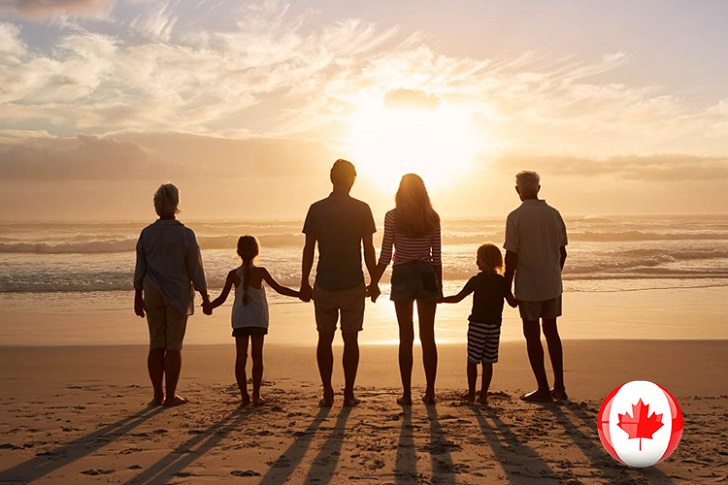To let Canadian citizens and permanent residents reunite with family members who live abroad or lawfully inside Canada, thanks to temporary permission, the family class immigration category was established in Canada.
When applying for the family class category, applicants must pledge to support the family members they are sponsoring by pledging that they will be able to meet their sponsored family members' basic needs (such as food, shelter, clothing, necessary goods or services, and health and dental care not already covered). This pledge of support is known as a sponsorship undertaking and will be for the benefit of the sponsored family members only.

Reach/ Twitter | Family class immigration is the second largest category of newcomers under Canada’s Immigration Levels Plan
These sponsored applicants may include spouses, common-law or conjugal partners, dependent children, parents, grandparents, and other relatives. These sponsored applicants will have the same rights and obligations as permanent residents when living, studying, and working in Canada.
Eligibility Criteria for Family Immigration
Families in Canada can reconcile through family sponsorship. The Canadian government prioritises processing sponsorship applications because it favours keeping families together. There are numerous ways for family members who are Canadian citizens or permanent residents to sponsor a relative living abroad to immigrate to Canada permanently.
Basic requirements for family sponsorship:

Cic News/ Getty Images | In 2023, Canada aims to welcome some 106,500 newcomers under the family class
To be a sponsor:
- You must be at least 18 years old.
- You must be a citizen of Canada, a permanent resident, or a person who has a Canadian Indian Act registration.
- You and the sponsored relative must sign a sponsorship contract in which you promise to help out financially if necessary. According to this agreement, the person becoming a permanent resident will also make every effort to support themselves.
- Additional responsibilities could be enforced depending on the individual you're sponsoring.
Who you can sponsor:
- Spouse, common-law spouse, or conjugal partner
- Your dependent children
- Your grandparents and parents
- Another relative of any age or connection, but only under certain circumstances, including your brothers, sisters, nephews, nieces, granddaughters, and grandsons who are orphaned, less than 18, and not married or in a common-law relationship.
- A few relatives who go along with the above
What is a dependent child?

Reach/ Twitter | The family class immigration program intends to reunite Canadian citizens and permanent residents with close family members
If the child is under the age of 22 and does not have a spouse or common-law partner of their own, the child of the sponsor or the child of the sponsor's spouse or common-law partner may be regarded as a dependent child. Suppose a child above the age of 22 was financially reliant on their parents before turning 22, and they cannot support themselves due to a mental or physical condition. In that case, they may still be considered dependents.
Children with a former spouse's sole custody are still counted as dependents and must be disclosed on the sponsorship application. If the dependent kid being sponsored has one or more dependents, the sponsor must demonstrate their ability to pay by earning less than a certain amount.
Other Requirements
For Family Class applications, the Canadian government mandates payment of sponsorship and processing costs. Every sponsored relative who is not a dependent child must also pay a "Right of Permanent Residence Amount"; this is the sole fee that will be reimbursed if the application is rejected or withdrawn.





